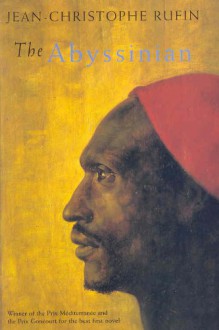Jean-Christophe Rufin yokes the elegant language of the French enlightenment with the storytelling of Alexandre Dumas to create a splendid parable of liberty, religious fanaticism and the possibility of happiness. 'Set in 1700, towards the end of the reign of Louis XIV, it follows the fortunes of...
show more
Jean-Christophe Rufin yokes the elegant language of the French enlightenment with the storytelling of Alexandre Dumas to create a splendid parable of liberty, religious fanaticism and the possibility of happiness. 'Set in 1700, towards the end of the reign of Louis XIV, it follows the fortunes of a brave apothecary, a talented but unofficial doctor, who is talked into leading an embassy from Cairo to Ethiopia ...Rufin maintains a perfect balance between impatient detachment and compassionate curiosity. The Abyssinian, like Thackeray's Vanity Fair, carries the weight of history with good-humoured finesse' The Times 'An ambitious first novel, dashing, abundant and, when necessary, vividly theatrical' Times Literary Supplement '[A] remarkably assured first novel ...Rufin's writing is elegantly readable' Independent 'It is old-fashioned enough to be delightful, and new enough to be moving' Glasgow Herald 'Rufin offers the reader at least three different novels in the space of a single book: a tale of diplomatic intrigue, a voyage of discovery to a virtually unknown civilisation, and a chronicle of the adventures and loves of his irrepressible hero' Daily Telegraph
show less

